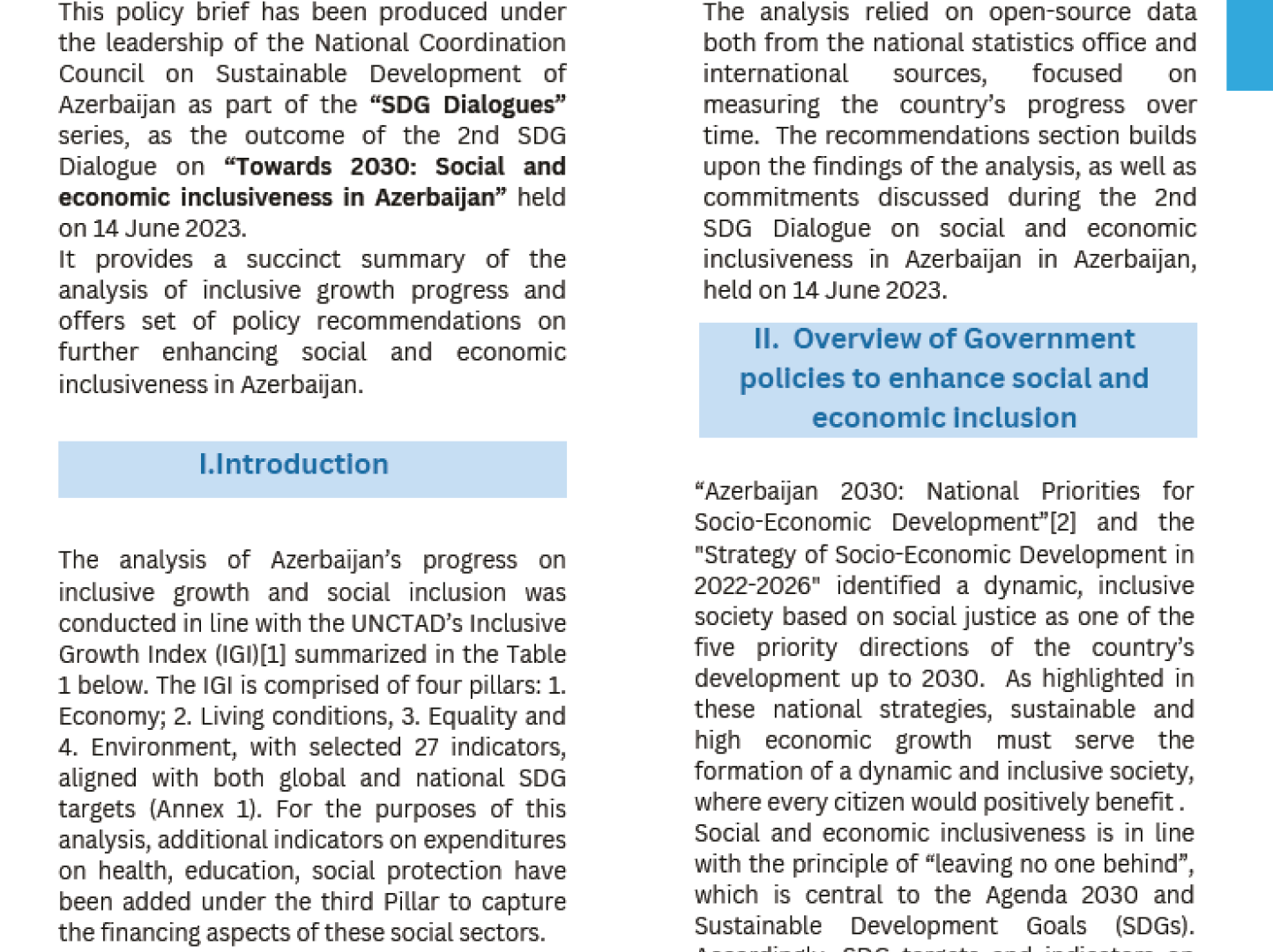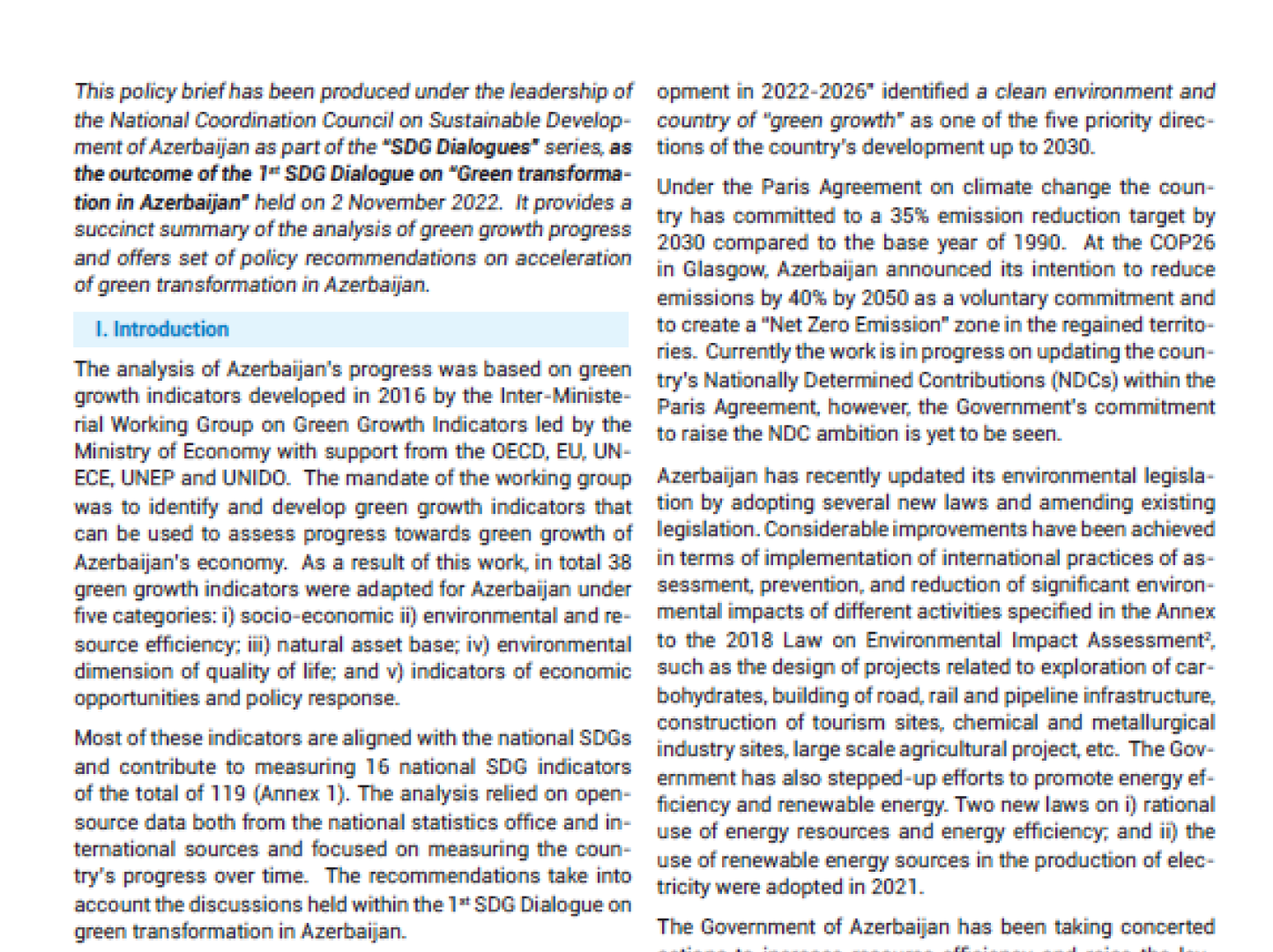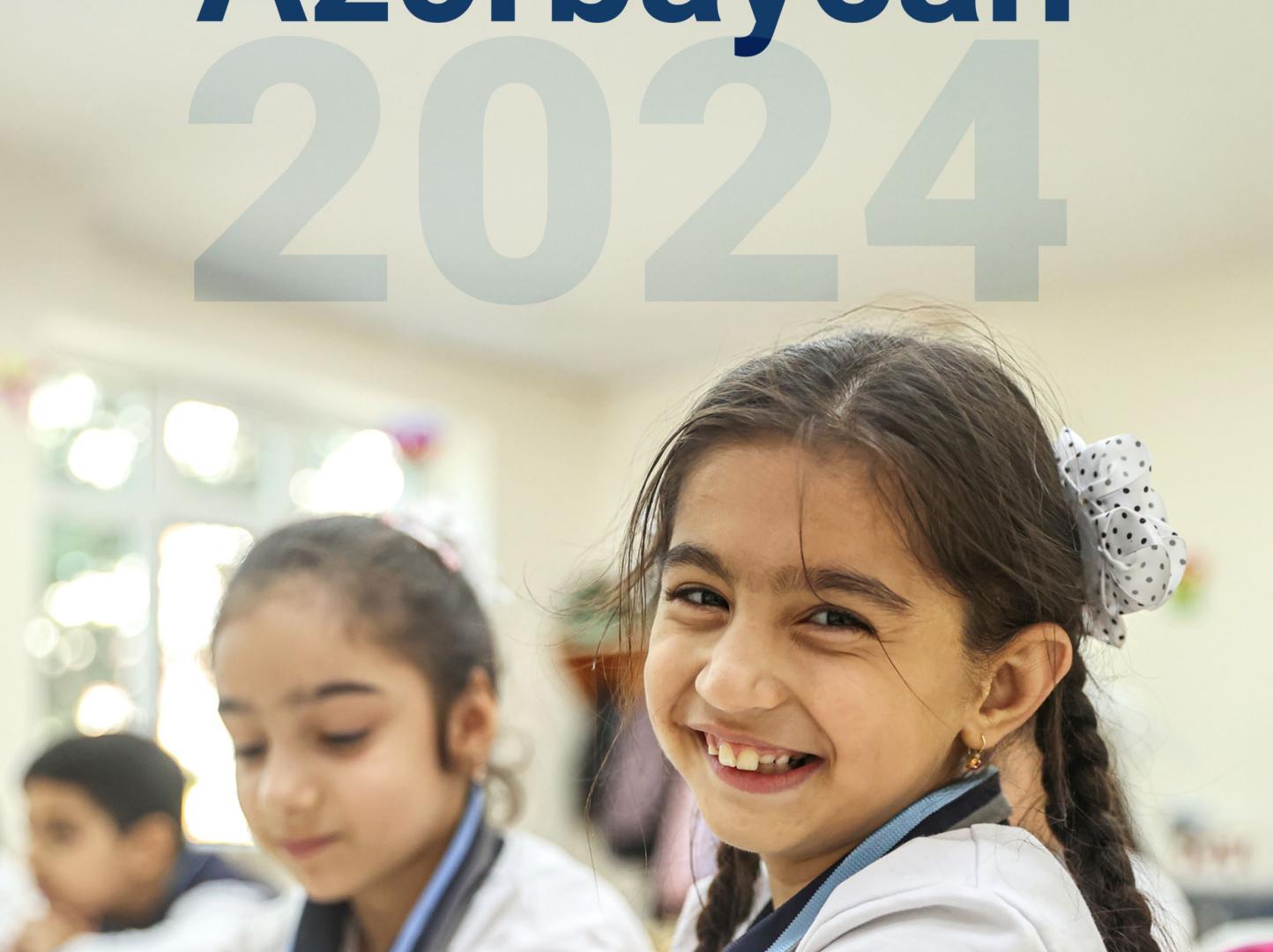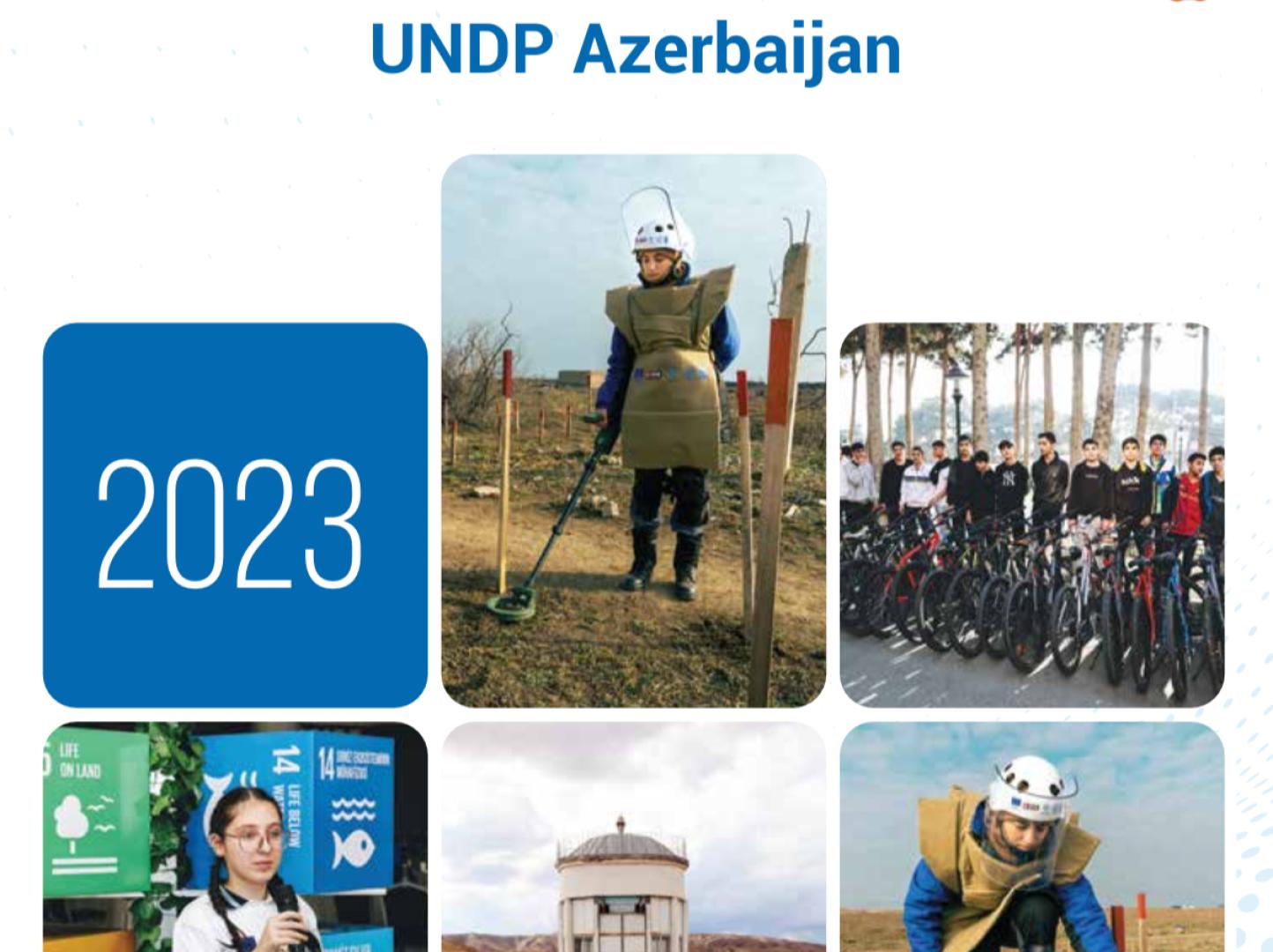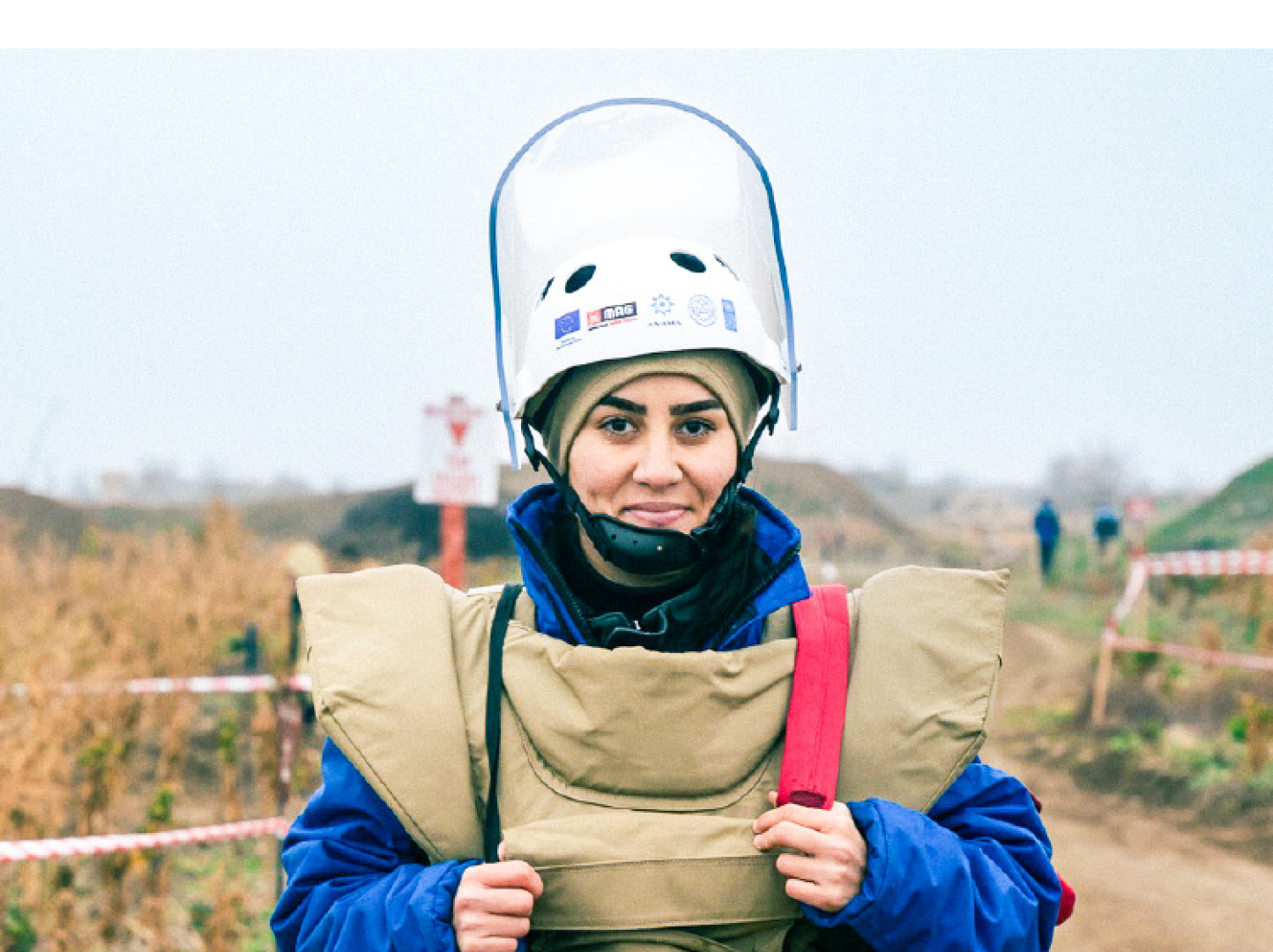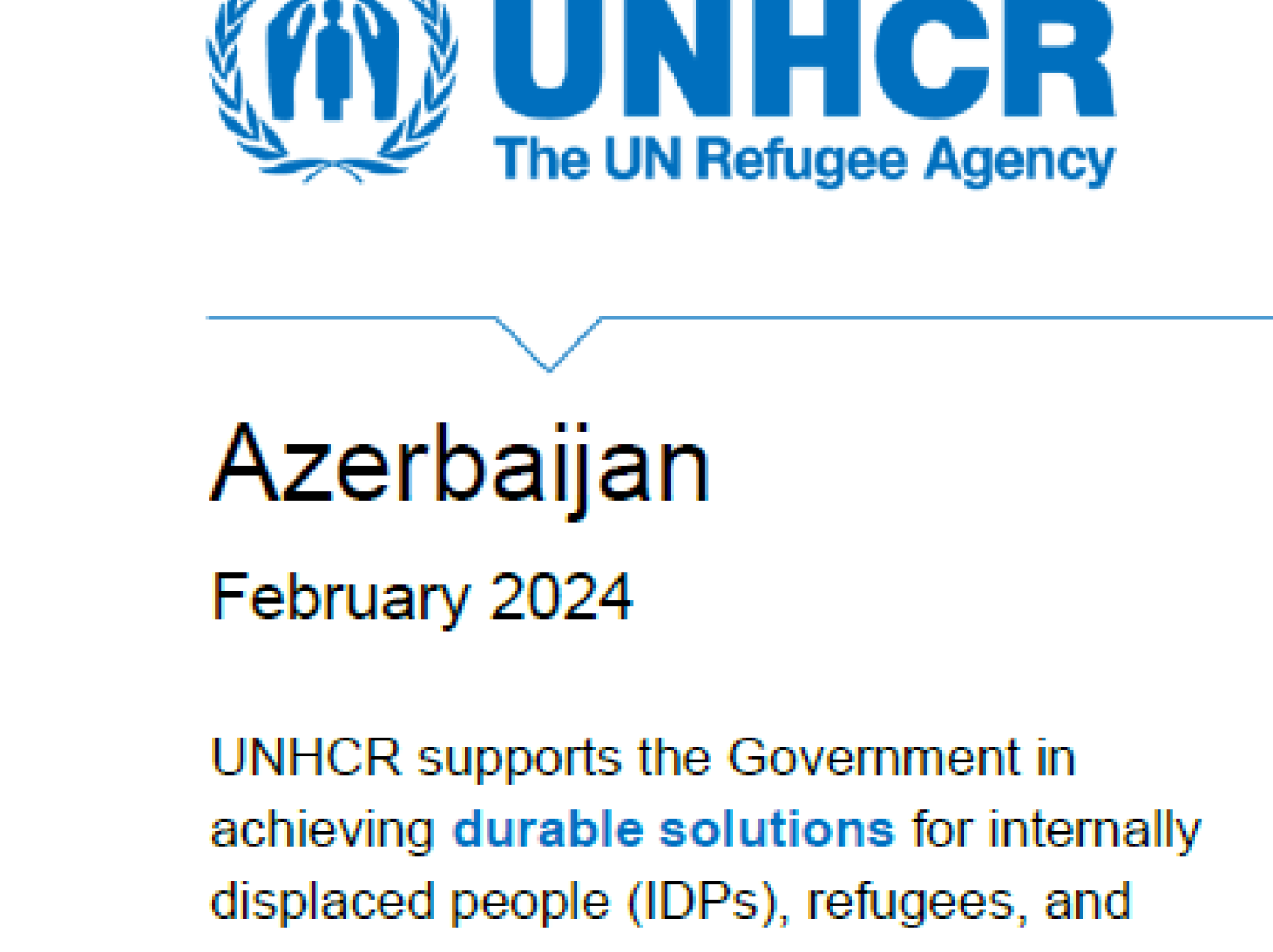Latest
The Sustainable Development Goals in Azerbaijan

We hope you enjoyed the second edition of the UN Azerbaijan Newsletter! Feel free to share and invite others to subscribe. To unsubscribe, email us, and we will respect your request rcs-unrcoazerbaijan@un.org| December 2024 |


Beyond formal negotiations, COP29 featured side events and dialogues, fostering collaboration and strengthening partnerships for inclusive and sustainable
solutions.
• Following the COP29 presidency’s request for coordinated UN support, the Global UN COP29 Task Force was activated by the Deputy Secretary-General
and co-chaired by the Special Adviser to the Secretary-General on Climate Action and Just Transition and the UN Resident Coordinator in Azerbaijan. Consisting of around 25 UN entities, the Task Force provided substantive support for 12 (out of 14) Presidency Initiatives launched during COP29. The Task Force has been hailed as a good practice of inter-agency collaboration in support of host governments of large-scale international conferences.
• As an integral part of the UN Azerbaijan COP29 Engagement Strategy, the UN organized the climate conversations series 29 Climate Conversations on
the Road to COP29 in Baku and some regions, in partnership with the COP29 presidency, the government, the private sector, civil society, young people, development partners, academia, the media and others, to raise awareness of climate change and mobilize climate action across the country. Addressing topics such as digital innovation, just transition, reproductive health, and green finance, the series brought together government representatives, international organizations, civil society, and private sector leaders to drive actionable solutions.
• Designed to inspire meaningful discussions and solutions, the UN Azerbaijan Pavilion at COP29 hosted around 25 events to explore the effects of climate change on women, children, refugees, migrants, and other vulnerable groups. Distinguished speakers engaged with participants, particularly youth, in insightful discussions on climate leadership.
• A key feature of the pavilion was the Four Climate Dialogues, a series of high-level interviews with experts and leaders on critical climate issues. These discussions provided insights into sustainable development strategies and actionable resilience measures for Azerbaijan and beyond. In addition, the Climate Impact and World Children’s Day photo exhibitions were held.
• At COP29, Azerbaijan launched several key initiatives with UN support to advance climate action and sustainable development, including the Baku
The Harmony Climate Initiative for Farmers aims to strengthen climate change adaptation in agriculture, food systems, and water management. Multisectoral
Action Pathways (MAP) to Resilient and Healthy Cities, endorsed by 45 governments, provides a framework for integrating climate resilience, public
health, and urban sustainability into national policies. The launch of the National Strategy for 2025–2030 on the Prevention and Control of Zoonotic Diseases reaffirmed Azerbaijan’s commitment to global health security and climate resilience. In parallel, the Environmental Performance Review was presented, engaging
stakeholders in aligning environmental and economic goals, and assessing compliance with international environmental commitments.
• Azerbaijan has also signed the Declaration on Children, Youth and Climate Action, committing to put children at the centre of climate policy. The Government also joined the Global Children’s Environmental Health Collaborative, making the country the ninth globally to join the initiative, established to prioritize children’s environmental health needs in local and international platforms.


This year, Azerbaijan and Lao PDR are both undertaking such reviews.At first glance, Azerbaijan, an upper-middle income country in the South Caucasus, would seem to have little in common with Lao PDR, a country working towards graduation from Least Developed Country status in the heart of tropical Southeast Asia.But look closer, and many more areas of common interest begin to emerge.
Both have strong track records of commitment to the SDGs- Azerbaijan is preparing its fourth Voluntary National Review and Lao PDR its third. Both have worked hard to integrate the SDGs into national frameworks and policies. And both have encountered major obstacles to their pursuit of sustainable development for all. Perhaps most prominently, both have developed a bespoke SDG18. For Lao PDR, SDG18 aspires to ‘Lives safe from unexploded ordnance’. For Azerbaijan, SDG18 covers ‘Actions to combat mine threats’. In both cases, removing the threats from landmines and explosive remnants of war is considered essential for progress across the SDGs, despite this not being a clear element of the global 2030 Agenda.
It is precisely the combination of these similarities and differences that set the context for a successful ‘twinning’ exchange between the two countries organized under a flagship ESCAP initiative to support Voluntary National Review processes. Arranged by ESCAP with support from UN Resident Coordinator’s Offices, UNDP, and UNICEF, the series of virtual and in-person exchanges between the two countries shared concrete ideas and experiences on how the SDGs can be pursued in a broad range of areas.
This included sharing pragmatic experiences on how SDG policies and indicators can be prioritized, which is particularly valuable in the context of ongoing work to develop the next cycle of the National Social Economic Development Plan for Lao PDR. The ‘twins’ were able to compare notes on how national institutions and structures can be organized to integrate and promote the achievement of the SDGs, such as through the establishment of national committees, and clearly linking policy discussions to financial resources.And lessons were shared on how different groups of stakeholders can be effectively and substantively engaged in national processes for the delivery of the 2030 Agenda- in particular how young people and volunteers can be engaged as a demographic that is so critical to the future development prospects of both countries.
This is already leading to new and promising areas of partnership. At the High-Level Political Forum in New York in July, a joint side event will be organized focused on the respective SDG 18s, working together to raise the profile of this critical development challenge for achievement across the SDGs for both countries.Discussions have also started on possible collaboration on issues related to climate change, and in particular climate finance in the lead up to Azerbaijan’s hosting of COP29 later this year.Exchanges are continuing on how Azerbaijan’s successful experiences in the digital delivery of public services could be shared with counterparts in Lao PDR as it embarks on its Digital Government Masterplan.And building on this success, plans are afoot to continue the exchange, next time in Vientiane.We are collectively badly off-track from our vision for 2030, and in urgent need of actions to change the trajectory. But, as the experiences of Azerbaijan and Lao PDR show, precisely because that vision is so universal, there is a world of ideas and inspiration out there that countries can draw on. It’s our job to help build that bridge.


Where we work: The UN’s programmatic interventions
The UN is implementing 0 programmatic interventions during the ongoing programme cycle. The map below displays the number of programmatic interventions per location (note that a programmatic intervention may be linked to more than one location). Click on the number on the map to get a summary description of the programmatic interventions. Programmatic interventions may be linked to the national level or specific locations/sub-national level. Note that some interventions linked to specific locations might also have components at the national level, even if they are not categorized as country-level interventions. Click on “Show location details” in the bottom right corner to view a summary table with locations, the number of programmatic interventions, and the UN entities working in those locations. For definitions of programmatic interventions, please refer to the Glossary section.





















